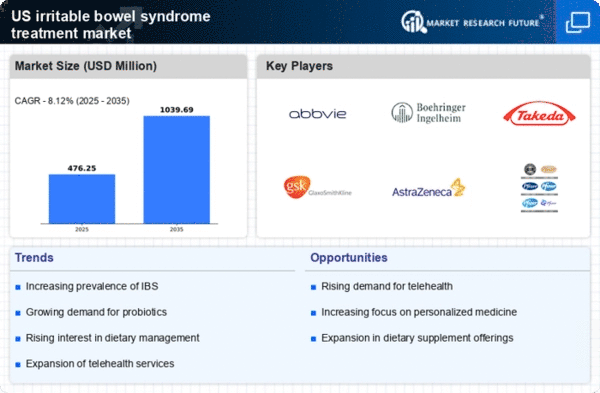The US Irritable Bowel Syndrome Treatment Market is characterized by a diverse competitive landscape driven by pharmaceutical advancements, innovative therapeutic options, and a growing awareness of gastrointestinal health conditions among consumers. The market is marked by the presence of various stakeholders, including large multinational corporations, biotechnology firms, and specialized niche players all aiming to capture market share through the introduction of novel therapies and cost-effective treatment solutions.
As healthcare providers increasingly emphasize personalized medicine and tailor treatments based on individual patient profiles, companies operating in this market are highly focused on research and development efforts. The competitive dynamics are influenced by factors such as regulatory approvals, pricing strategies, patient adherence, and the establishment of strategic partnerships aimed at enhancing market reach and improving therapeutic outcomes.
Sorrento Therapeutics has solidified its position within the US Irritable Bowel Syndrome Treatment Market through robust research and development initiatives, focusing on innovative therapeutics that address unmet medical needs in this domain. The company has strategically aligned its capabilities to develop a range of treatment options that target the underlying causes of irritable bowel syndrome, demonstrating a commitment to improving patient outcomes.
Sorrento Therapeutics benefits from its agile operational structure, allowing for swift adaptation to changing market conditions and a keen focus on enhancing collaboration with healthcare providers for better clinical insights. This nimbleness, combined with an emphasis on advancing therapeutic formulas and patient-focused solutions, contributes to Sorrento's growing market presence and competitive edge in the US.
AstraZeneca plays a significant role in the US Irritable Bowel Syndrome Treatment Market through its established portfolio of gastrointestinal therapies and innovative approaches to managing irritable bowel syndrome. The company has introduced key products that address a variety of symptoms while maintaining compliance with regulatory standards and achieving favorable clinical outcomes. AstraZeneca is recognized for its strong research capabilities and extensive experience in drug development, which facilitate effective launches of targeted therapies.
The company also bolsters its market presence through strategic mergers and acquisitions, further expanding its therapeutic offerings and enhancing its distribution capabilities across the US. AstraZeneca’s commitment to patient education, disease awareness campaigns, and partnerships with healthcare professionals underscores its strengths in delivering comprehensive and effective IBS treatments, ensuring that patients have access to the latest advancements in care.





















